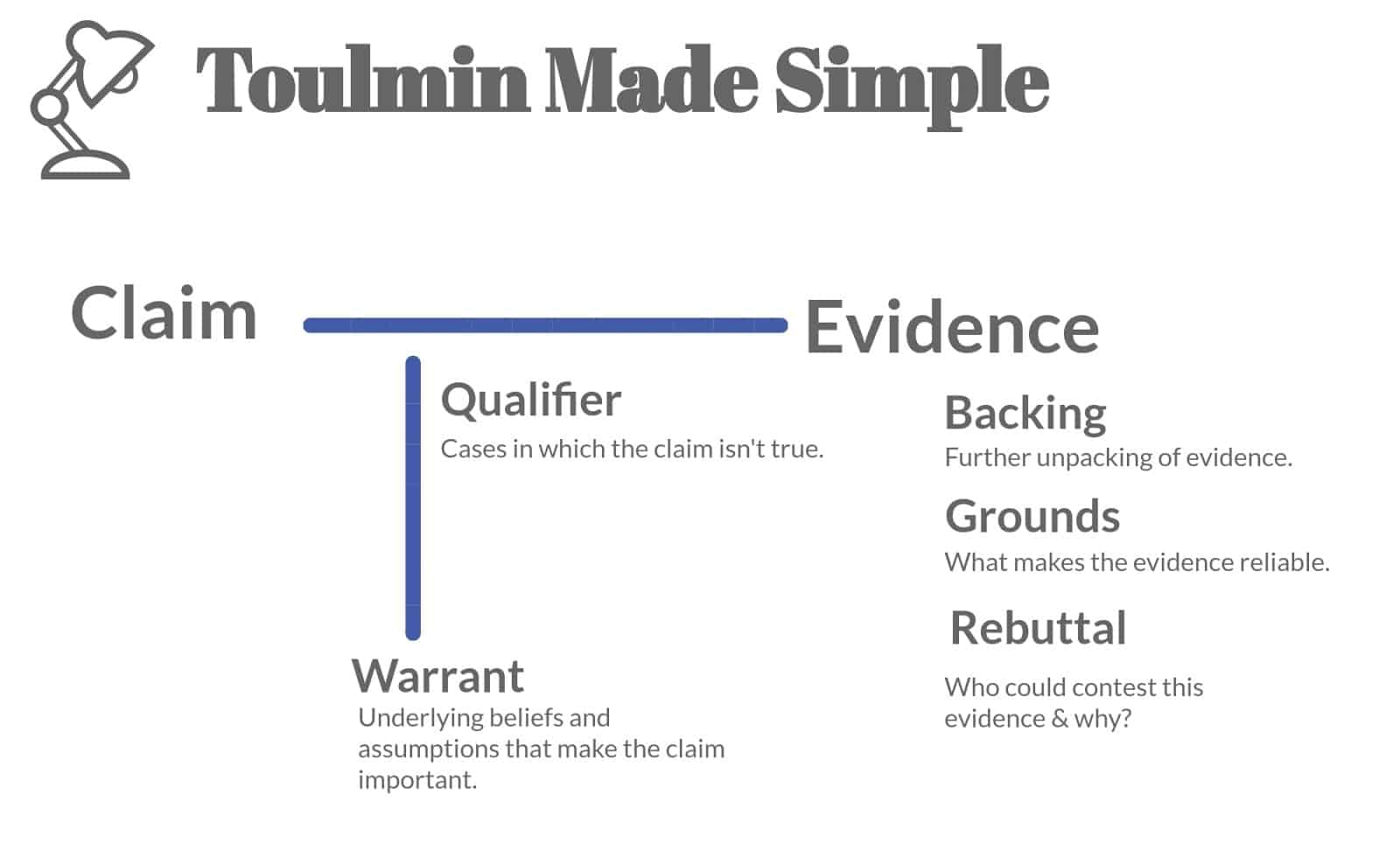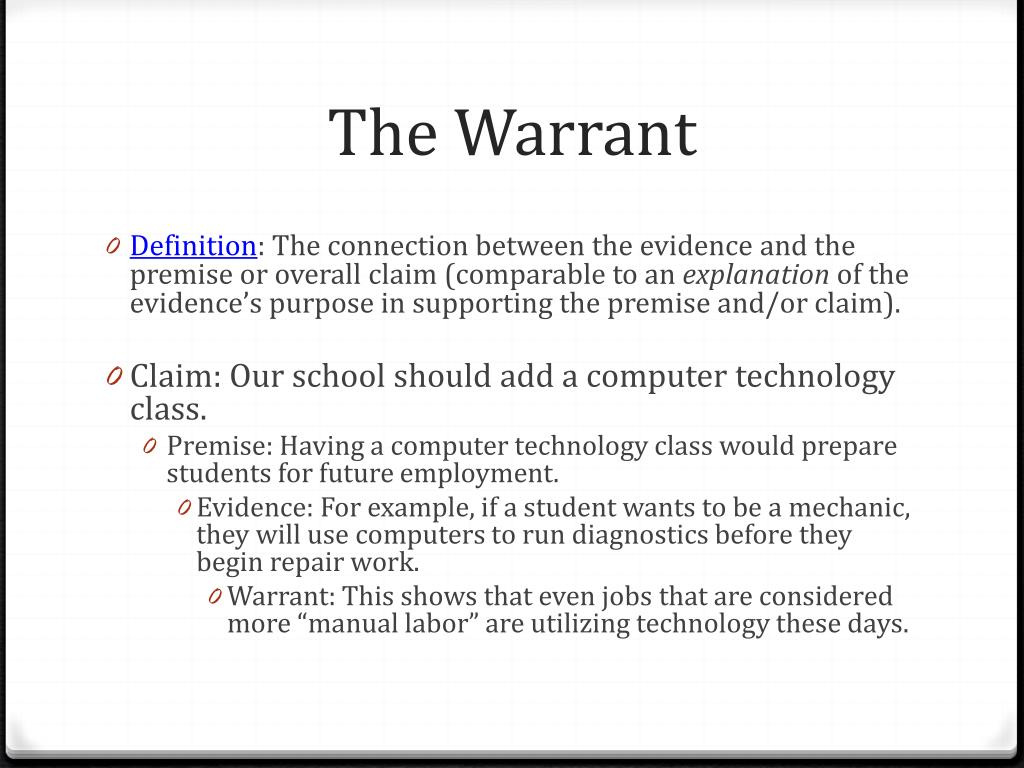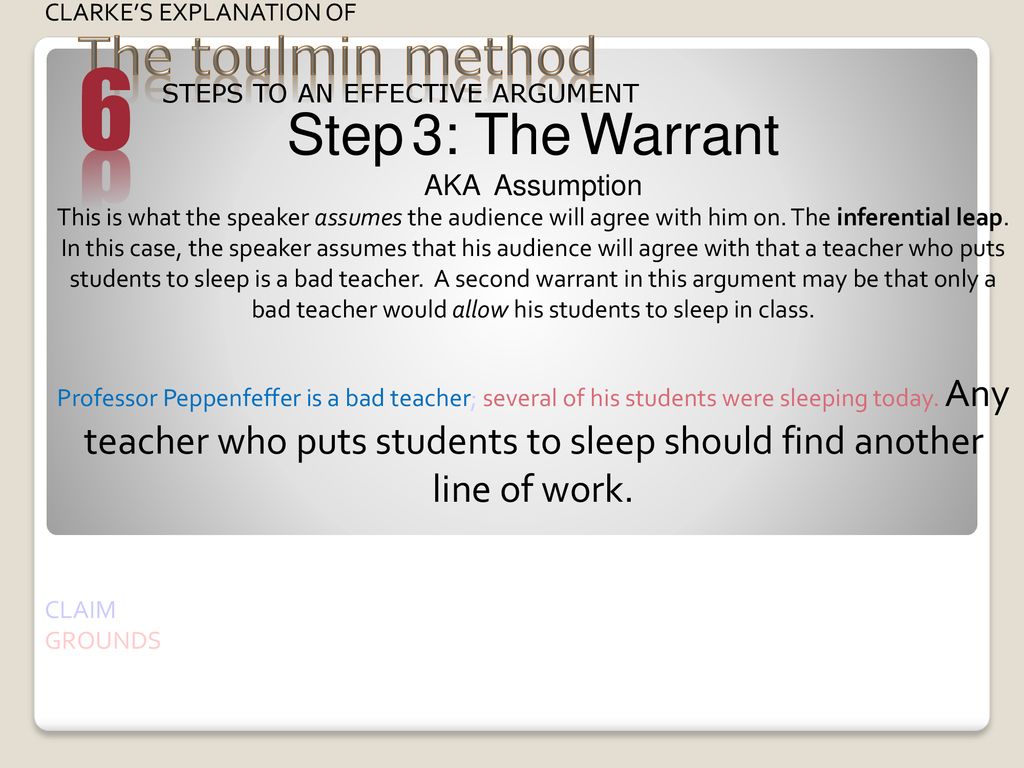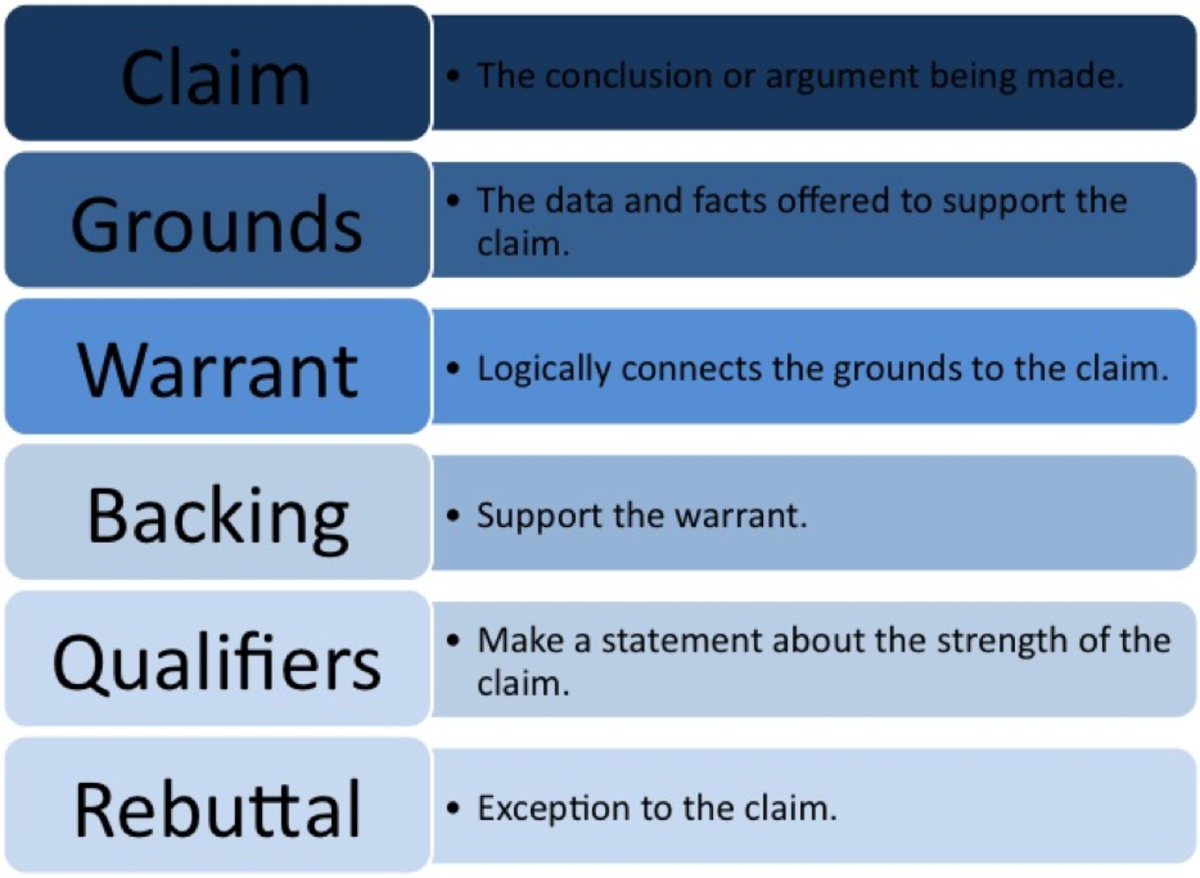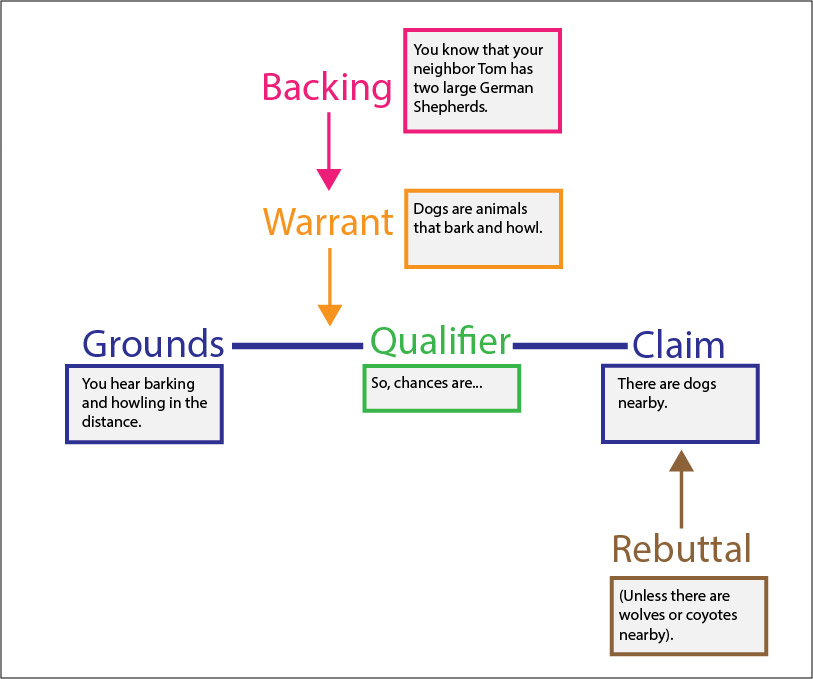Toulmin Method Warrant - The warrant is often left unstated, it provides the logic of why. A claim is the assertion that. Toulmin identifies the three essential parts of any argument as the claim; The warrant, the third fundamental part of toulmin’s model, serves to link the claim and the grounds. The exciting element of the warrant is. The claim, grounds, warrant, backing, qualifier and rebuttal. In toulmin’s method, every argument begins with three fundamental parts: The data (also called grounds or evidence ), which support the claim;. The claim, the grounds, and the warrant. Warrants are chains of reasoning that connect the claim and evidence/reason.
Warrants are chains of reasoning that connect the claim and evidence/reason. A warrant is the principle, provision or chain of reasoning that. The claim, the grounds, and the warrant. The warrant is often left unstated, it provides the logic of why. A claim is the assertion that. Toulmin identifies the three essential parts of any argument as the claim; Stephen toulmin identified six elements of an argument: The data (also called grounds or evidence ), which support the claim;. The claim, grounds, warrant, backing, qualifier and rebuttal. In toulmin’s method, every argument begins with three fundamental parts:
In toulmin’s method, every argument begins with three fundamental parts: A warrant is the principle, provision or chain of reasoning that. Toulmin identifies the three essential parts of any argument as the claim; Stephen toulmin identified six elements of an argument: The claim, grounds, warrant, backing, qualifier and rebuttal. The claim, the grounds, and the warrant. A claim is the assertion that. The data (also called grounds or evidence ), which support the claim;. The warrant is often left unstated, it provides the logic of why. The warrant, the third fundamental part of toulmin’s model, serves to link the claim and the grounds.
How to Build Strong Argumentation by Using the Toulmin Method
The data (also called grounds or evidence ), which support the claim;. The warrant, the third fundamental part of toulmin’s model, serves to link the claim and the grounds. Warrants are chains of reasoning that connect the claim and evidence/reason. Stephen toulmin identified six elements of an argument: The claim, the grounds, and the warrant.
PPT Teaching with the Toulmin Model PowerPoint Presentation, free
A warrant is the principle, provision or chain of reasoning that. Stephen toulmin identified six elements of an argument: The warrant is often left unstated, it provides the logic of why. Toulmin identifies the three essential parts of any argument as the claim; In toulmin’s method, every argument begins with three fundamental parts:
PPT The toulmin method argument PowerPoint Presentation ID325159
A warrant is the principle, provision or chain of reasoning that. The data (also called grounds or evidence ), which support the claim;. Toulmin identifies the three essential parts of any argument as the claim; In toulmin’s method, every argument begins with three fundamental parts: The warrant, the third fundamental part of toulmin’s model, serves to link the claim and.
The Toulmin Argument Model Let's Get Writing!
Warrants are chains of reasoning that connect the claim and evidence/reason. In toulmin’s method, every argument begins with three fundamental parts: The exciting element of the warrant is. The warrant is often left unstated, it provides the logic of why. Toulmin identifies the three essential parts of any argument as the claim;
The toulmin method of argument ppt download
The warrant is often left unstated, it provides the logic of why. Warrants are chains of reasoning that connect the claim and evidence/reason. In toulmin’s method, every argument begins with three fundamental parts: A warrant is the principle, provision or chain of reasoning that. Toulmin identifies the three essential parts of any argument as the claim;
Read The Claim. Then Explain The Warrant
The warrant, the third fundamental part of toulmin’s model, serves to link the claim and the grounds. A warrant is the principle, provision or chain of reasoning that. Stephen toulmin identified six elements of an argument: Warrants are chains of reasoning that connect the claim and evidence/reason. The warrant is often left unstated, it provides the logic of why.
PPT The Toulmin Model of Argument PowerPoint Presentation, free
A warrant is the principle, provision or chain of reasoning that. The warrant, the third fundamental part of toulmin’s model, serves to link the claim and the grounds. The claim, the grounds, and the warrant. Toulmin identifies the three essential parts of any argument as the claim; The exciting element of the warrant is.
How To Organize a Paper The Toulmin Method The Visual Communication Guy
A warrant is the principle, provision or chain of reasoning that. A claim is the assertion that. Stephen toulmin identified six elements of an argument: In toulmin’s method, every argument begins with three fundamental parts: The claim, the grounds, and the warrant.
Toulmin Argument Purdue OWL® Purdue University
The claim, the grounds, and the warrant. Toulmin identifies the three essential parts of any argument as the claim; The warrant is often left unstated, it provides the logic of why. A warrant is the principle, provision or chain of reasoning that. The warrant, the third fundamental part of toulmin’s model, serves to link the claim and the grounds.
PPT The Toulmin Model PowerPoint Presentation, free download ID6134689
Stephen toulmin identified six elements of an argument: The data (also called grounds or evidence ), which support the claim;. The exciting element of the warrant is. A warrant is the principle, provision or chain of reasoning that. The claim, the grounds, and the warrant.
The Warrant Is Often Left Unstated, It Provides The Logic Of Why.
In toulmin’s method, every argument begins with three fundamental parts: The claim, the grounds, and the warrant. Stephen toulmin identified six elements of an argument: The warrant, the third fundamental part of toulmin’s model, serves to link the claim and the grounds.
A Claim Is The Assertion That.
A warrant is the principle, provision or chain of reasoning that. The data (also called grounds or evidence ), which support the claim;. The exciting element of the warrant is. Warrants are chains of reasoning that connect the claim and evidence/reason.
The Claim, Grounds, Warrant, Backing, Qualifier And Rebuttal.
Toulmin identifies the three essential parts of any argument as the claim;
